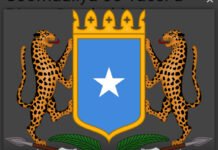By HAN News Desk
N’DJAMENA — The government of Chad has officially closed its border with Nigeria, citing escalating security concerns over potential militant movements from northern Nigeria into Chadian territory. Officials stated that the measure comes in response to intelligence reports suggesting that armed groups, including insurgents fleeing intensified military operations in Nigeria, might attempt to cross into Chad.
Authorities also highlighted concerns over a potential U.S.-led military operation in the region, which has been discussed in connection with alleged killings of Christian communities and accusations of genocide in parts of northern Nigeria. Although U.S. officials have not confirmed any imminent action, Chadian authorities have indicated that the border closure is a precautionary measure to safeguard the country’s sovereignty and protect civilians.
Chad’s military has been placed on high alert, with troops and armored vehicles deployed along key crossing points. Surveillance has been intensified, and checkpoints have been established at major border towns. “We are taking every step necessary to ensure that our territory is protected from the movement of armed groups and from any foreign military actions that could destabilize the region,” a senior Chadian security official said.
The border closure is likely to have immediate consequences for civilians and commerce. Cross-border trade, which includes the transport of goods such as fuel, foodstuffs, and livestock, is expected to be severely disrupted, affecting both Chadian and Nigerian communities that rely on these economic exchanges. Humanitarian organizations operating in the Lake Chad Basin have also expressed concern over restricted access to vulnerable populations in need of aid.
The Lake Chad Basin region, which spans parts of Chad, Nigeria, Niger, and Cameroon, has long been a hotspot for insurgent activity. Groups such as Boko Haram and the Islamic State West Africa Province (ISWAP) continue to carry out attacks, abductions, and raids, despite ongoing military campaigns aimed at curbing their influence. Analysts say that regional instability, combined with the porous nature of borders, makes preventive measures like Chad’s closure a critical—if disruptive—strategy.
Local communities along the border have reported heightened anxiety following the announcement. Traders have begun stockpiling essential goods, while some residents have temporarily relocated to safer areas further inland. The Chadian government has urged calm, assuring that security forces are working to maintain stability and minimize disruption to civilian life.
Regional experts say that Chad’s move reflects broader concerns about spillover from Nigeria’s insurgency, particularly as militant groups seek refuge and resources beyond their traditional strongholds. “The Lake Chad Basin remains fragile, and any escalation in northern Nigeria has direct implications for Chad and neighboring countries,” said a security analyst familiar with the region.
Chad has not indicated when the border might reopen, and authorities continue to monitor the evolving security situation closely. In the meantime, the government is coordinating with regional partners to prevent the spread of violence and ensure that border communities remain protected.




